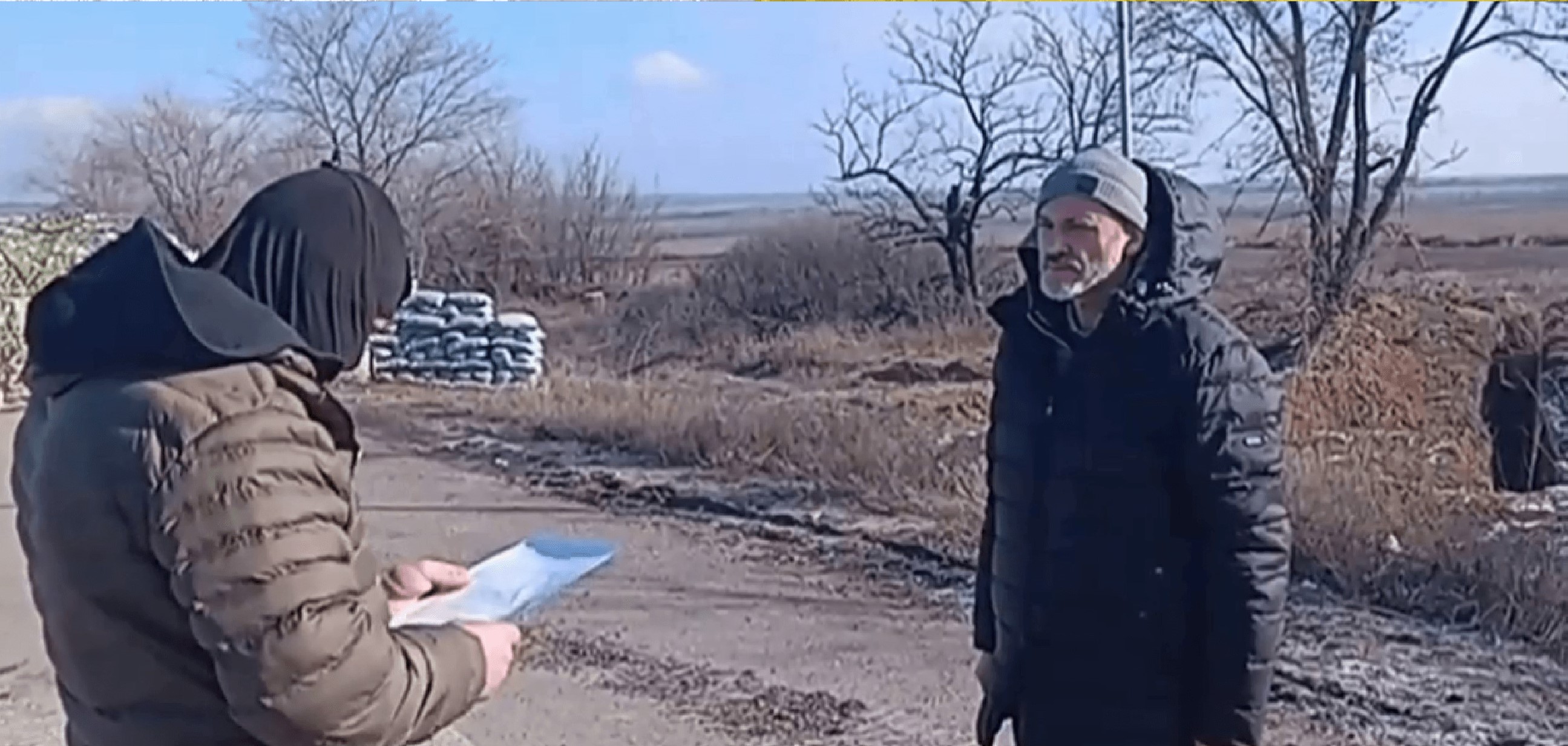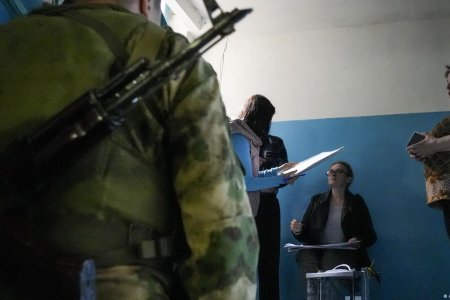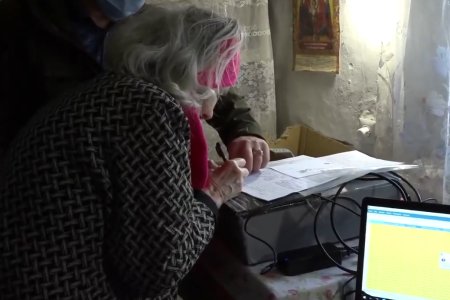
Russia has still further broadened the scope for deporting Ukrainian citizens from their Ukrainian homeland as so-called ‘foreign nationals’. All such measures are both dangerous and illegal, even if the supposed safeguards which will disappear on 5 February 2025 were largely on paper since Russia’s kangaroo ‘courts’ on occupied territory are there solely to do what they are told.
The relevant amendments to Russian legislation were signed into law by Russian leader Vladimir Putin on 8 August 2024 and are due to come into force on 5 February 2024. They may well have been introduced as part of the anti-migrant hysteria unleashed and fuelled in Russia after the authorities failed both to avert and to adequately react to the terrorist attack on the Crocus City Hall music venue near Moscow in March 2024.
The problem is that any such legislation will be applied on all Ukrainian territory illegally under Russian occupation. If, up till now, any ‘administrative deportation’ of a person treated by Russia as a foreign national and ‘illegal migrant’ needed to be authorized by a court, that will change on 5 February 2025. From then on, Russian or Russian-controlled ‘police’ heads, deputy heads, ‘migration department’ officials, etc. will be able to decide on this or that person’s ‘administrative expulsion’ for a range of so-called administrative offences. In theory, a person will have ten days to appeal against such a decision. The law also imposes administrative liability for providing “a foreign national included in the register of monitored individuals” with prohibited services.
Police corruption and harassment of migrants in Russia were notorious even before Putin came to power, and the new legislation can only increase police lawlessness and impunity. In occupied Crimea, the Russian FSB are known to have used at least two foreign nationals (a Latvian fugitive from justice and a person who did not want to be returned to Uzbekistan) as ‘secret witnesses’ in multiple trials of Crimean Tatar and other Ukrainian political prisoners. The supposed ‘testimony’ of men allowed anonymity in court although they had nothing to fear from the defendants, only from the FSB, has resulted in sentences of up to 19 years’ imprisonment against a huge number of civic journalists and activists from occupied Bakhchysarai. The police and FSB may now find it even easier to blackmail people into helping them fabricate political trials.
As well as ‘administrative offences’ linked with overstaying a visa, etc., fines or even brief jail terms can also be imposed on occupied territory for as little as playing a Ukrainian patriotic song, publicly displaying a Ukrainian flag, or expressing opposition to Russia’s war against Ukraine. All of the above have, for example, been used in occupied Crimea for accusing a person of ‘discrediting the Russian armed forces’ under Article 20.3.3 of Russia’s administrative code.
Just as in occupied Crimea from 2014, Russia has made it virtually impossible to survive on any occupied Ukrainian territory without receiving a Russian passport. This, however, does not necessarily protect a Ukrainian from being deported from their own home. RIA-Melitopol reported on 3 December 2024 that the Russian invaders have already begun stripping Melitopol residents of such citizenship. This follows a new ‘law’ which came into force on 23 November and envisages the stripping of citizenship from those who have not given the ‘oath of allegiance of a Russian citizen’. This ‘oath’ asserts that the person is “voluntarily and consciously’ taking Russian citizenship, and that, among things, they will “fulfil the duties of a citizen of the Russian Federation’ and ‘be true to Russia’.
It seems, Putin first issued a ‘decree’ requiring such an oath back on 22 November 2023, but it is only now being imposed. RIA Melitopol notes wryly that it is probably those Ukrainians who happily accepted Russian occupation and did actually rush to take Russian citizenship who could suffer now. They took Russian citizenship when it genuinely was ‘on offer’ and before the oath was required. Such a period lasted around six months, and clearly did not produce the desired effect as Russia then moved to coercive measures to foist its citizenship on Ukrainians.
RIA-Melitopol reported back in December that the absence of the oath is not the only pretext for stripping Ukrainians of the Russian citizenship without which they can no longer get work, receive pensions, free healthcare and risk losing their home, and even their children. Refusal or failure to report to and be placed on the military register are also grounds for depriving a person of their Russian passport and placing them in danger of forced ‘deportation’.
It has to be said that the alternative is not necessarily better. Russian citizenship means that Ukrainians are liable for military service and / or mobilization and are, therefore, in danger of being forced to fight for the invader against fellow Ukrainians.
As reported, Putin signed a decree back on 22 April 2023 envisaging deportation of Ukrainians from occupied territory for refusing to take Russian citizenship. Although such a refusal was, theoretically, not enough, the actions deemed to “pose a threat to Russia’s national security” included those that were totally legitimate in Ukraine or any democratic state. The decree stipulated that Ukrainians living on occupied territory must either take on Russian citizenship or state that they do not wish to do so. Those who refused the aggressor state’s citizenship would, from 1 July 2024, be considered ‘foreigners’, with those whom Russia chose to view as ‘a threat to national security’, deported. Such a supposed ‘threat’ could be seen according to Article 13 of the decree, in attending what Russia calls, “unauthorized meetings, rallies, demonstrations, processions or picketing”, with this claimed to be “attempts against public safety”. You would also be considered a danger to national security if they decided you support the liberation of occupied territory’ (with this described as ‘violating the territorial integrity of the RF’ and / or “supporting the violent change of the basis of constitutional order of the RF”). Another alleged justification for deportation would be what was called “financing or planning terrorist (extremist) activities”. As seen in occupied Crimea, such charges could be used against a Jehovah’s Witness and serve to get them sentenced to 6-7 years’ imprisonment.



